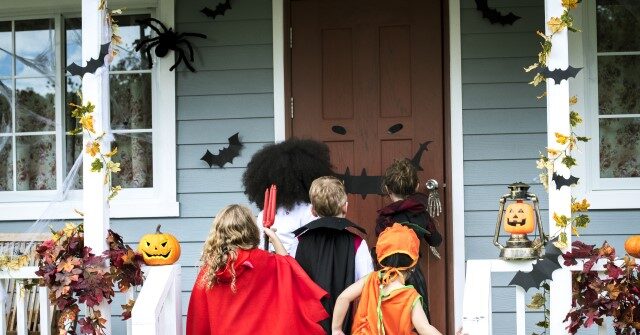Inflation is significantly affecting families’ spending habits as Halloween approaches, prompting many to seek out more affordable options for costumes. In the current economic climate, families are prioritizing essential needs over extravagant purchases. As reported by WSVM, a Goodwill shopper from Nashville, Tennessee, emphasized the importance of making choices that alleviate financial stress, stating that children would be content with less extravagant costumes. This sentiment is echoed by parents across the country, particularly in Las Vegas, where thrift store shopping is becoming a popular way to cut costs on holiday expenses.
One Las Vegas mother of two expressed her decision to buy used costumes instead of new ones, largely due to the high prices associated with this year’s holiday season. She noted that Halloween costumes, typically worn only once or twice, are not worth the hefty price tags found in retail stores. Goodwill has emerged as a key player in providing affordable options, offering a wide range of Halloween costumes and accessories at prices significantly lower than those found in traditional retailers. For instance, a children’s turtle costume that sold for $50 online was available at Goodwill for just $7.99, while a Princess Peach dress, usually retailing at $70, could be purchased for merely $5.99.
A survey conducted by Goodwill in 2024 reveals a notable shift in consumer behavior due to inflation, with nearly 75% of shoppers admitting that rising costs have impacted their Halloween budgets. Additionally, around 60% of respondents indicated they are more inclined to shop at thrift stores for Halloween goods this year. This trend highlights a growing awareness and adaptation among families facing financial constraints, as they seek to maintain holiday traditions while being mindful of their expenditures.
Moreover, the impact of inflation extends beyond costumes to other Halloween-related expenses, such as candy. Rising chocolate prices are a concern for many parents, influencing their plans for trick-or-treating. According to Breitbart News, there is currently a cocoa bean shortage driven by several factors, including illegal gold mining, climate change, and diseases affecting cocoa plants. This shortage has led retailers to increasingly offer non-chocolate candies as alternatives, a move that reflects consumer adaptation to changing economic circumstances.
The financial burden of celebrating Halloween this year highlights the effects of current economic policies, with many individuals questioning the rising costs of basic goods. Breitbart News noted that the cost of candy has soared under the Biden-Harris administration, a situation that parents are acutely aware of as they prepare for the holiday season. The increase in prices emphasizes the generational shifts in how families must approach holiday celebrations, particularly when it comes to budgeting for traditional festivities.
Ultimately, the economic landscape has compelled families to rethink how they celebrate Halloween, focusing on affordability and practicality over extravagance. Shifting consumer behavior towards thrift shopping, and the acknowledgment of rising costs in candy and costumes, represent a new reality for many households. While the spirit of Halloween endures, the adjustments families are making amidst inflation signify a broader trend of frugality and resourcefulness in their holiday planning.

